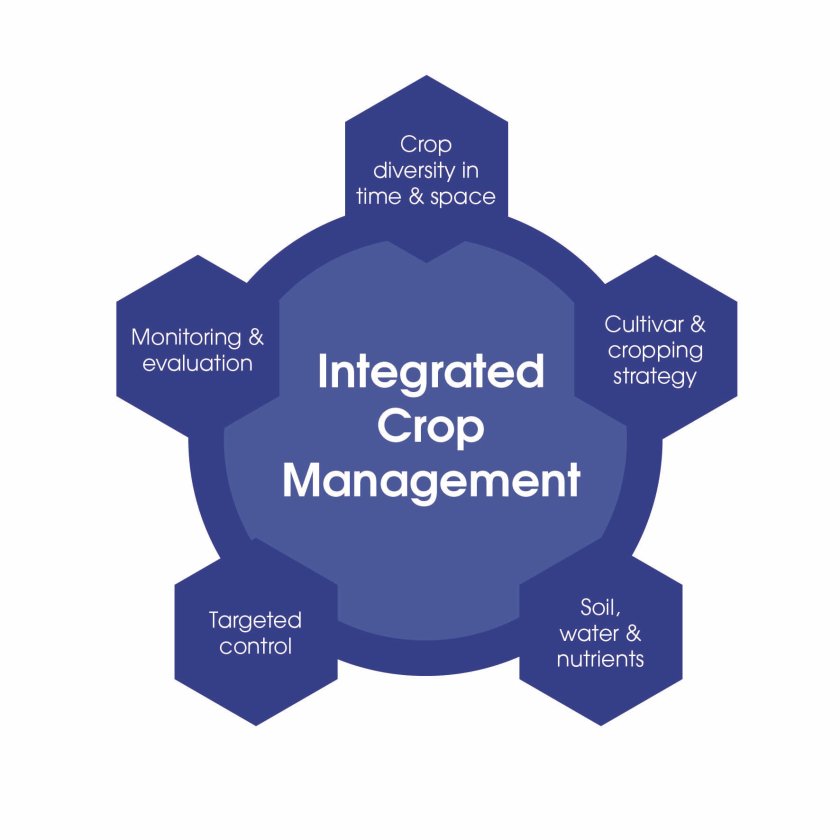
Dossier
Integrated Crop Management (ICM)
Integrated Crop Management (ICM) is an approach in agriculture that seeks to minimise the use of crop protection agents. The aim is to grow healthy crops using sustainable methods while running a profitable business.
ICM studies various factors that contribute to a healthy crop. In doing so, it retains the principles of the well-known Integrated Pest Management (IPM), but the ICM approach is broader and can be divided into five main pillars:
- Crop diversity: Growing different types of crops in a specific order and spatial layout helps reduce the impact of diseases, pests and weeds.
- Cultivar and cropping strategy: Choosing the right variety and cultivation method affects crop health and weed reduction.
- Soil, water and nutrients: Good soil care and the correct use of water and manure ensure strong crops.
- Targeted control: If diseases, pests or weeds occur, they are controlled in a targeted manner, as far as possible only where they occur and at the optimum time, with minimal use of crop protection agents.
- Monitoring and evaluation: By measuring, the effect of choices becomes clear and adjustments can be made.

The ICM approach minimises the use and reliance on crop protection agents wherever possible. For each disease, pest or weed, control methods are combined to create a sophisticated strategy.
The ICM strategy is based on three mechanisms:
- Preventing a disease, pest or weed from establishing itself in a crop so that a crop cannot be affected by it.
- Ensuring that a crop is grown in such a way that it suffers minimum impact from a disease, pest or weed if it does occur.
- Minimising the possibility of a disease, pest or weed spreading or multiplying, thus limiting the problem in the future.
Support techniques are also used to help estimate the expected effects of measures.
